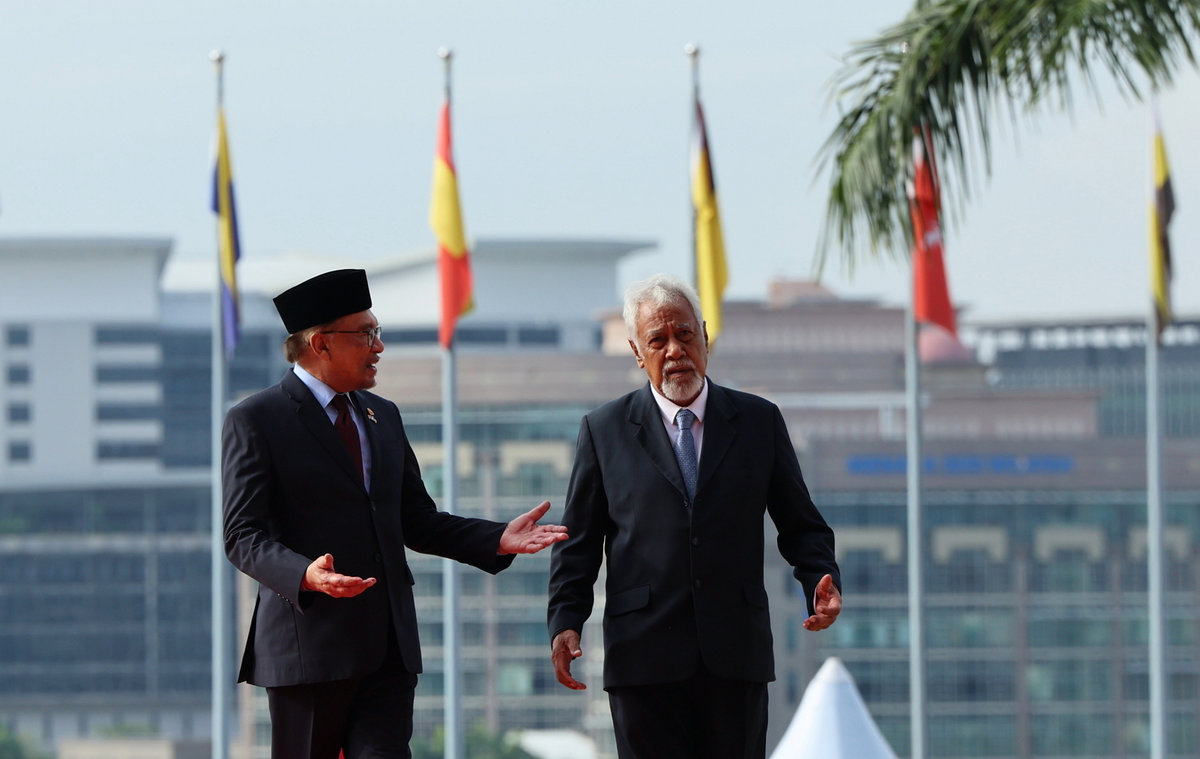PETALING JAYA: Malaysia stands to gain diplomatically, economically and strategically as Timor-Leste edges closer to becoming the 11th member of the Association of Southeast Asian Nations (Asean), say regional experts.
Long a strong supporter of Timor-Leste’s bid to join Asean, Malaysia’s backing aligns with its broader foreign policy goals and its current role as Asean Chair.
Universiti Malaya International Relations and Human Rights expert Associate Professor Dr Khoo Ying Hooi said Malaysia’s support enhances its leadership image and moral standing in the region.
“Malaysia’s endorsement makes sense politically and diplomatically. It’s a chance to show regional leadership on an issue that reflects Asean’s founding values,” she said.
She added that Malaysia could also strengthen bilateral ties with Timor-Leste through cooperation in education, youth exchange, capacity-building and governance, while tapping into new economic and development opportunities.
Economist Doris Liew, a specialist in Southeast Asian development, said
Timor-Leste’s entry would help reinforce regional cohesion, with Malaysia playing a key supporting role.
“Targeted policy support, especially under the Asean Economic Community and Digital Economy Framework, can ease Timor-Leste’s integration process,” she said.
Liew noted that although Timor-Leste still faces institutional and developmental hurdles, Malaysia’s experience in public administration and policy could be a valuable asset in helping the country meet Asean standards.
From a political and cultural standpoint, Universiti Utara Malaysia senior lecturer Dr Siti Darwinda Mohamed Pero pointed out that Timor-Leste brings a rare democratic example to the region.
“Timor-Leste is the most democratic country in Southeast Asia. According to the Economist Intelligence Unit’s 2023 Democracy Index, it’s the only country in the region classified as a ‘flawed democracy’ – the rest are considered authoritarian or hybrid regimes.”
She added that Timor-Leste’s experience in post-conflict governance could offer valuable lessons for Asean’s Political-Security Community.
“The country has a track record in peacebuilding, reconciliation and post-conflict development.
“Economically, Malaysia could explore opportunities in Timor-Leste’s petroleum, fisheries, agriculture and eco-tourism sectors, ” she said.
On the geopolitical front, Nusantara Academy for Strategic Research senior fellow Dr Azmi Hassan warned that Asean – and Malaysia in particular – must act swiftly before external powers, especially China, extend their influence over Timor-Leste.
“Before Timor-Leste becomes overwhelmed by Chinese economic and geopolitical influence, Asean needs to act quickly to make Timor-Leste a member,” he said, referring to the country’s participation in China’s Belt and Road Initiative.
Azmi praised Malaysia’s decade-long support for Timor-Leste’s membership bid, calling it a “steadfast advocate” for the fledgling democracy.
On Sunday, Foreign Minister Datuk Seri Mohamad Hasan confirmed that Timor-Leste has made “meaningful progress” on the roadmap to full membership.
Timor-Leste, which gained independence from Indonesia in 2002 after 24 years of occupation, applied to join Asean in 2011. It was granted observer status in 2022, but full membership has been delayed due to capacity and institutional challenges.
On Monday, Timor-Leste Prime Minister Kay Rala Xanana Gusmao said he is optimistic about securing full Asean membership by the end of this year, with October seen as a potential milestone.









